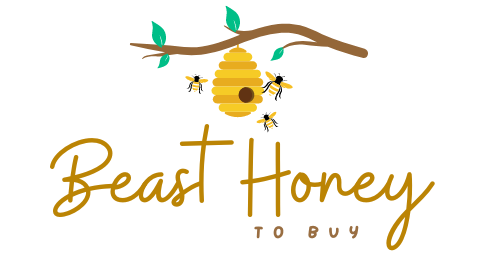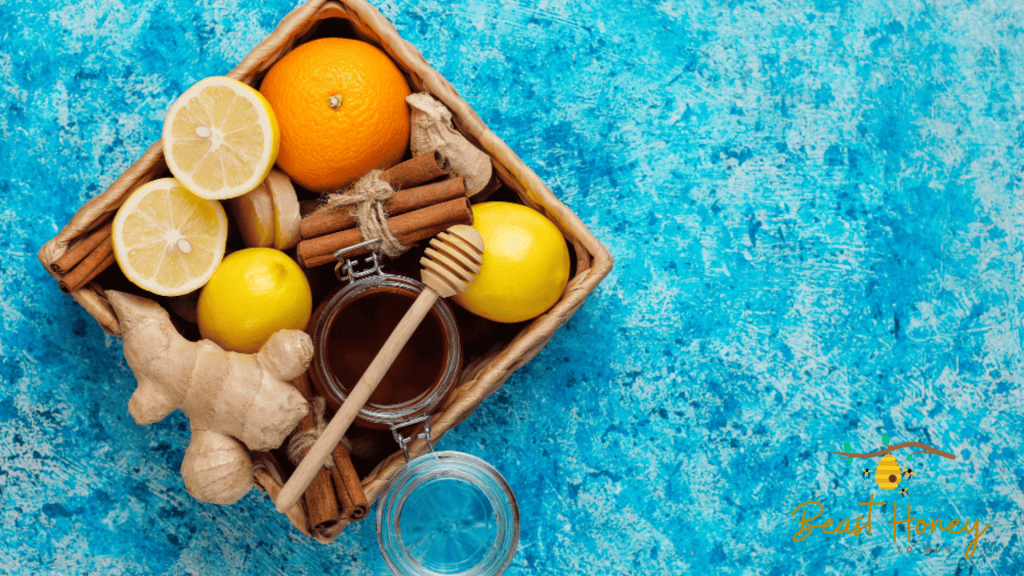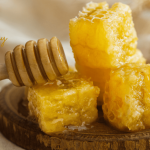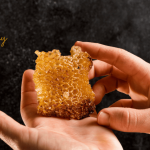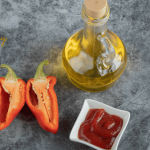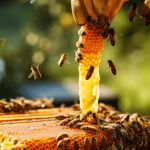Honey syrup and maple syrup are pantry favorites.
They sweeten pancakes, tea, and recipes with natural flavor. Both seem healthier than white sugar. But which one is better for you? It’s not a simple answer.
This guide compares honey syrup and maple syrup in terms of nutrition, health benefits, and uses. We’ll break it down to help you choose. Let’s dive in with a friendly look at these sweet contenders!
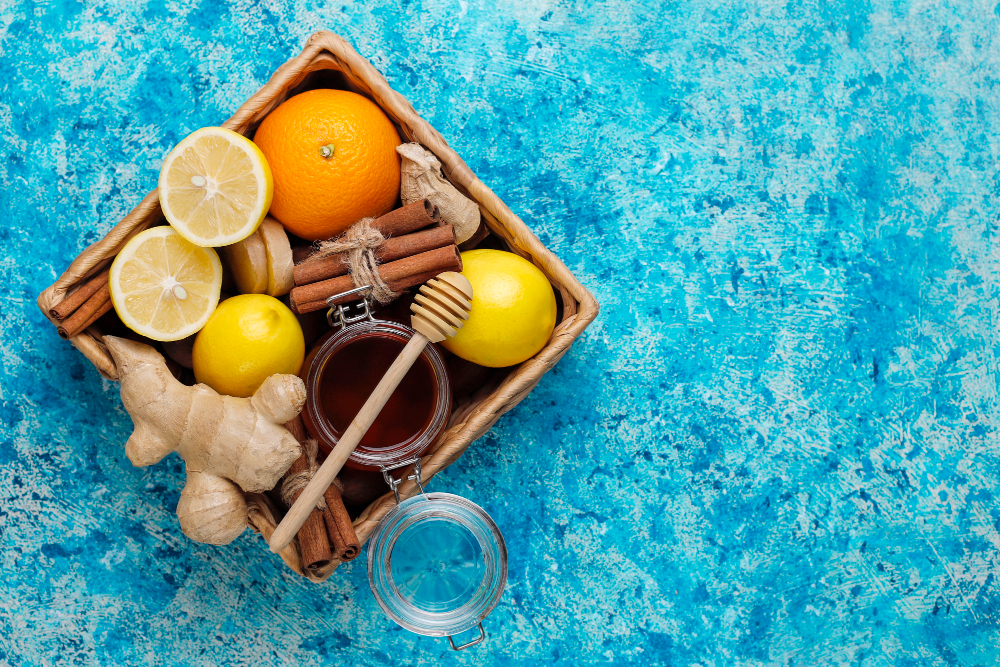
What Is Honey Syrup?
Honey syrup is made from raw honey. It’s often diluted with water or heated to create a pourable consistency.
Some brands add flavors or sweeteners, but pure honey syrup is just honey in a liquid form. Raw honey is unprocessed, keeping its natural enzymes and nutrients. Honey syrup is versatile for drizzling or mixing into drinks.
What Is Maple Syrup?
Maple syrup comes from the sap of maple trees. The sap is boiled to concentrate its sugars, creating a rich, sweet syrup. Pure maple syrup is 100% natural with no additives. It’s graded by color and flavor, like Grade A or B. Maple syrup is a classic topping for pancakes and a sweetener in baking.
Nutritional Breakdown
To find the healthier option, let’s compare their nutrition. Both are natural sweeteners, but their profiles differ. Here’s a look at 1 tablespoon (20g) of each.
Honey Syrup Nutrition
- Calories: 64
- Sugar: 17g
- Carbs: 17g
- Protein: 0g
- Fat: 0g
- Key Nutrients: Small amounts of vitamins C and B, plus minerals like calcium and iron.
- Antioxidants: Contains flavonoids and phenolic compounds.
Maple Syrup Nutrition
- Calories: 52
- Sugar: 12g
- Carbs: 13g
- Protein: 0g
- Fat: 0g
- Key Nutrients: High in manganese and zinc, with traces of calcium and potassium.
- Antioxidants: Contains polyphenols and other compounds.
Quick Comparison
Honey syrup has more calories and sugar per tablespoon. Maple syrup offers more minerals like manganese. Both have antioxidants, but their types differ. Neither has fat or protein.
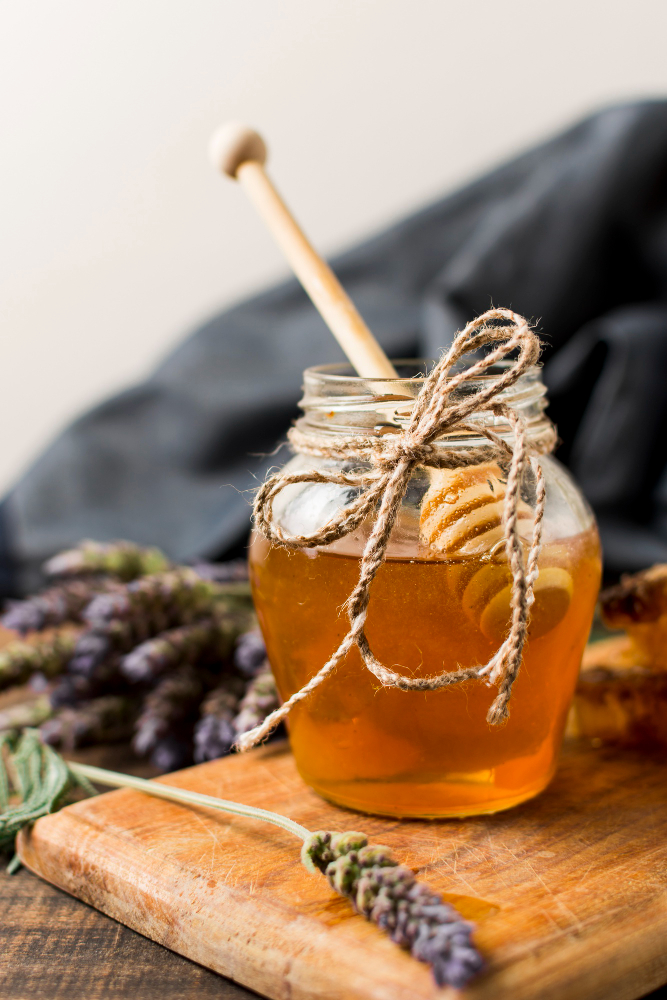
Health Benefits of Honey Syrup
Honey syrup, especially from raw honey, has unique perks. Here’s why it’s considered healthy.
Antibacterial Properties
Raw honey fights bacteria naturally. It’s been used for centuries to soothe sore throats. Honey syrup retains some of these properties if minimally processed. It might help with minor infections or coughs.
Antioxidant Boost
Honey is rich in antioxidants. These fight free radicals, which can harm cells. Antioxidants may reduce inflammation and support heart health. Raw honey syrup has more antioxidants than processed versions.
Gut Health Support
Honey contains prebiotics. These feed good gut bacteria, aiding digestion. A healthy gut can improve immunity and overall wellness. Honey syrup in moderation may support this balance.
Energy Source
Honey’s natural sugars provide quick energy. It’s a favorite for athletes or anyone needing a fast boost. Honey syrup’s liquid form makes it easy to mix into drinks or snacks.
Health Benefits of Maple Syrup
Maple syrup isn’t just a tasty topping. It has its own health advantages.
Rich in Minerals
Maple syrup is high in manganese, which supports bone health and metabolism. It also has zinc, which boosts immunity. These minerals give maple syrup a slight edge in nutrient content.
Antioxidant Power
Maple syrup contains polyphenols. These antioxidants may protect against heart disease and inflammation. Darker maple syrup grades, like Grade B, have more antioxidants than lighter ones.
Lower Glycemic Index
Maple syrup has a glycemic index (GI) of about 54, compared to honey’s 58. This means it raises blood sugar more slowly. For people watching blood sugar, maple syrup might be a better choice.
Heart Health Potential
Some studies suggest maple syrup’s compounds could lower cholesterol. Its antioxidants may also reduce oxidative stress, supporting heart health. More research is needed, but it’s promising.
Potential Downsides
Both sweeteners have drawbacks. Neither is a “superfood” if overused. Here’s what to watch for.
Honey Syrup Downsides
- High Sugar: Too much honey syrup can spike blood sugar and add calories.
- Processing: Some honey syrups are heated, losing nutrients. Check for “raw” on labels.
- Allergies: Rarely, honey can cause allergic reactions or carry pollen allergens.
- Not for Babies: Honey can contain botulism spores, unsafe for kids under one.
Maple Syrup Downsides
- Sugar Content: It’s still high in sugar, which can lead to weight gain if overused.
- Cost: Pure maple syrup is pricier than honey syrup, averaging $10–$20 per pint.
- Fakes: Some “maple syrups” are just flavored corn syrup. Always buy 100% pure.
- Calories: While lower than honey, it’s still calorie-dense.
Which Is Healthier?
The “healthier” choice depends on your needs. Here’s a breakdown:
- For Immunity: Honey syrup wins. Its antibacterial and prebiotic properties support immunity and gut health.
- For Minerals: Maple syrup takes the lead. Its manganese and zinc content is higher.
- For Blood Sugar: Maple syrup is better. Its lower GI causes less blood sugar spike.
- For Antioxidants: It’s a tie. Both have unique antioxidants with similar benefits.
- For Budget: Honey syrup is often cheaper, especially in bulk.
Neither is a health cure. Use both in moderation as part of a balanced diet.
How to Use Honey Syrup and Maple Syrup
Both sweeteners are versatile. Here are ideas to enjoy them:
Honey Syrup Uses
- Drinks: Stir into tea or lemonade for a natural sweetener.
- Dressings: Mix with mustard and vinegar for a tangy salad dressing.
- Glazes: Brush on roasted veggies or chicken for a sticky finish.
- Smoothies: Blend into fruit smoothies for extra flavor.
Maple Syrup Uses
- Breakfast: Drizzle over pancakes, waffles, or oatmeal.
- Baking: Use in cookies or cakes for a rich, caramel-like taste.
- Sauces: Add to BBQ sauce for a sweet, smoky flavor.
- Desserts: Pour over yogurt or ice cream for a simple treat.
Quality Matters
The health benefits depend on quality. Here’s how to choose the best:
- Honey Syrup: Look for “raw” and “unfiltered” on labels. Buy from local beekeepers or trusted brands like Nature Nate’s.
- Maple Syrup: Choose 100% pure maple syrup. Check for Grade A or B, avoiding “pancake syrup” with additives.
- Source: Local options reduce environmental impact. Farmers’ markets or co-ops are great places to shop.
Poor-quality versions (like fake maple syrup or processed honey) lose health benefits.
Environmental Impact
Both have eco-friendly potential, but there are differences:
- Honey Syrup: Supports beekeepers and bees, which pollinate crops. Local honey has a low carbon footprint.
- Maple Syrup: Sustainable if sourced from eco-conscious farms. But tree tapping and boiling sap use energy.
Buying local and organic reduces the environmental toll for both.
Real-Life Example: My Syrup Switch
Last year, I used honey syrup for everything—tea, baking, even salad dressings. It was cheap and tasty. But I noticed my blood sugar spiked after big doses.
I tried maple syrup instead, buying a pint of Grade A for $12. I loved its caramel flavor on oatmeal, and I felt steadier energy-wise. Now I use honey syrup for sore throats and maple syrup for cooking. Both have a place in my kitchen—it’s about balance!
FAQs About Honey Syrup vs. Maple Syrup
Here are quick answers to common questions:
- Can I use them interchangeably? Yes, but flavors differ. Honey is floral; maple is caramel-like.
- Are they vegan? Maple syrup is vegan. Honey isn’t, as it’s a bee product.
- Which is better for weight loss? Neither directly aids weight loss. Use sparingly due to calories.
- Can diabetics use them? In moderation, but maple syrup’s lower GI is safer. Ask a doctor.
These clear up doubts and guide your choice.
Final Thoughts: Which Is Healthier?
Honey syrup and maple syrup are both natural and healthier than refined sugar. Honey syrup shines for immunity and gut health. Maple syrup wins for minerals and blood sugar control. The “healthier” option depends on your goals—immunity or nutrient density. Both are calorie-dense, so use them sparingly.
Choose high-quality, pure products. Mix and match based on taste and needs. Drizzle honey syrup in tea for a cold or maple syrup on pancakes for breakfast. With moderation, both can sweeten your life guilt-free. Which do you prefer? Share your favorite way to use them!
For more information, visit , https://besthoneytobuy.com/
